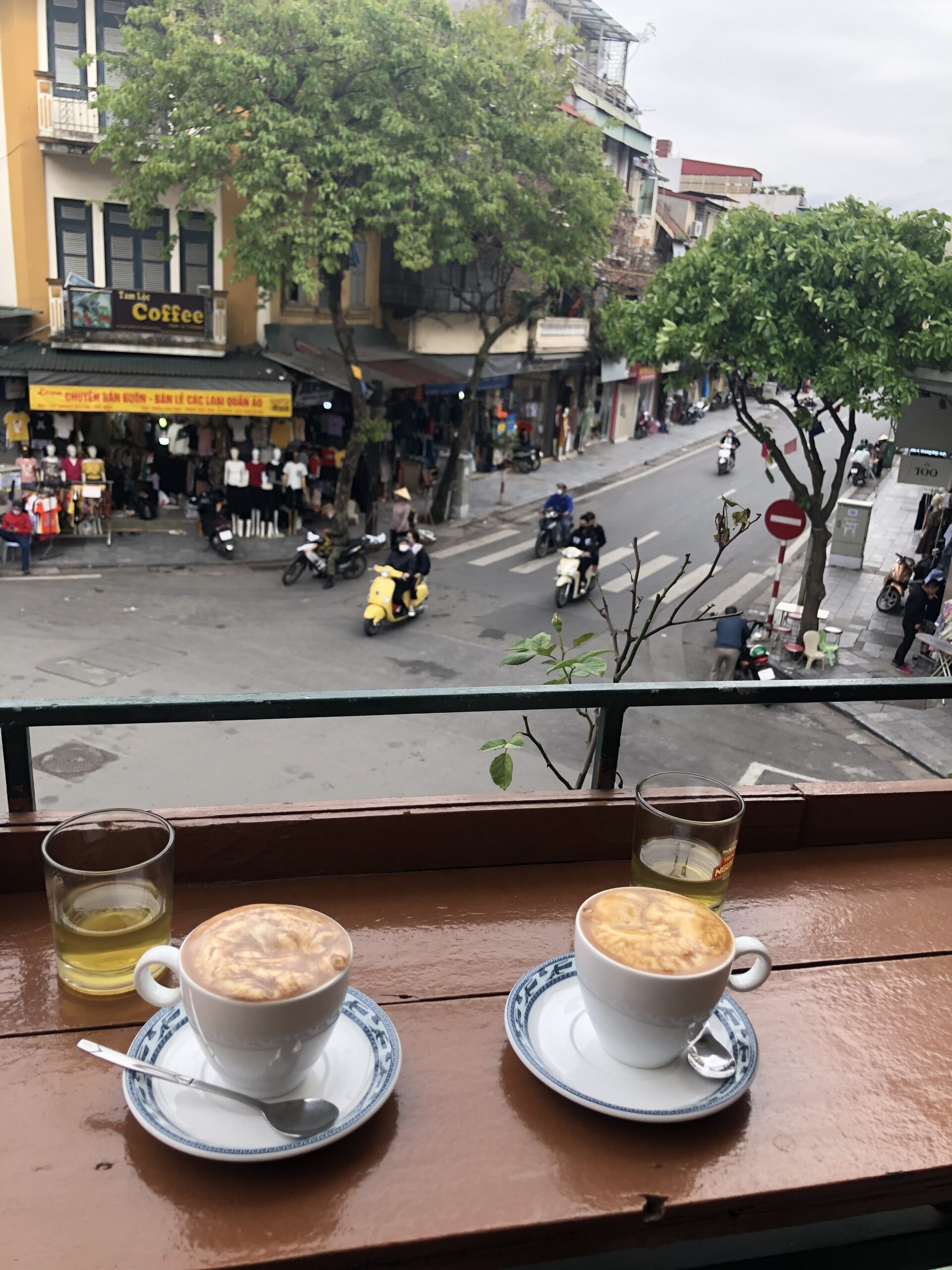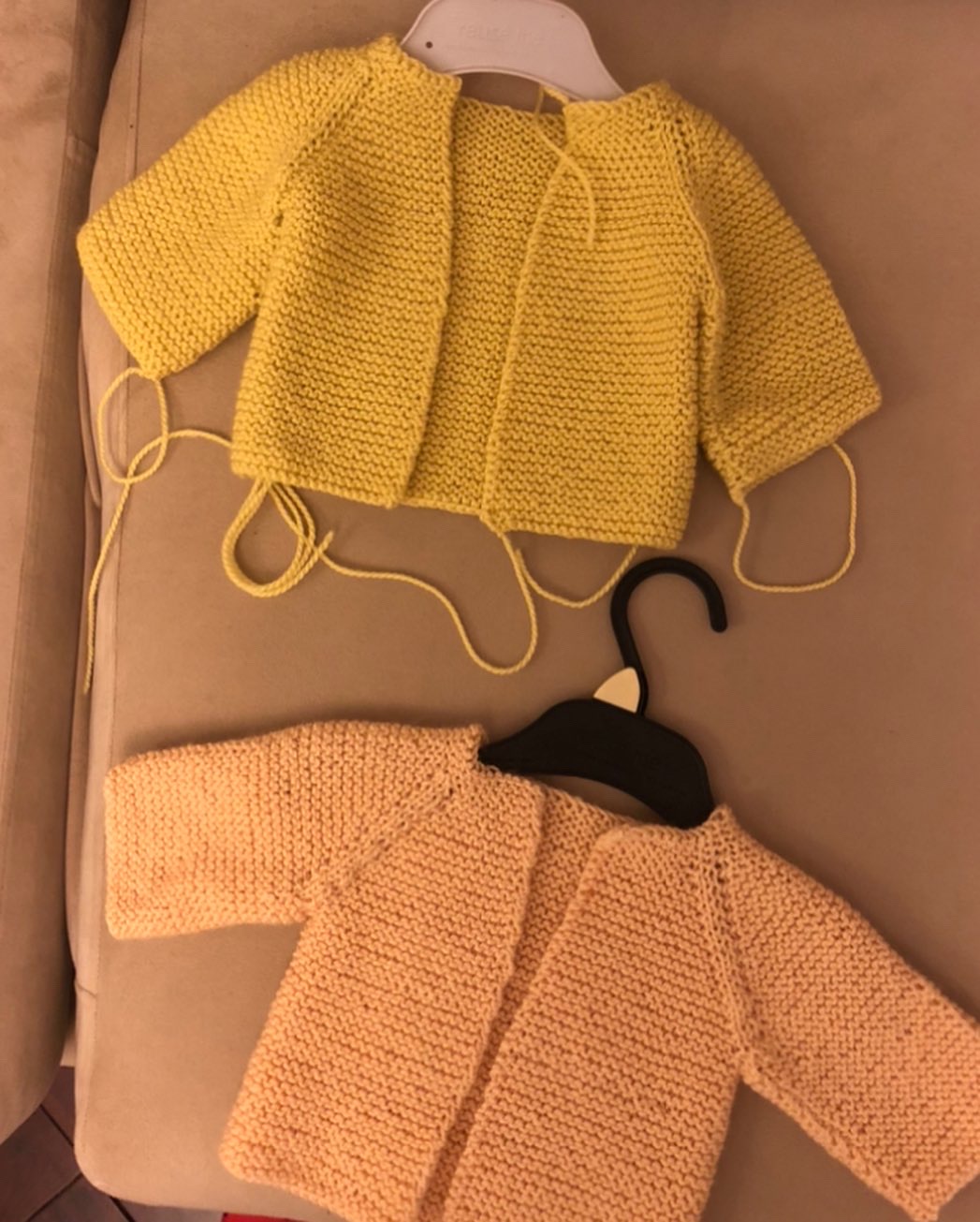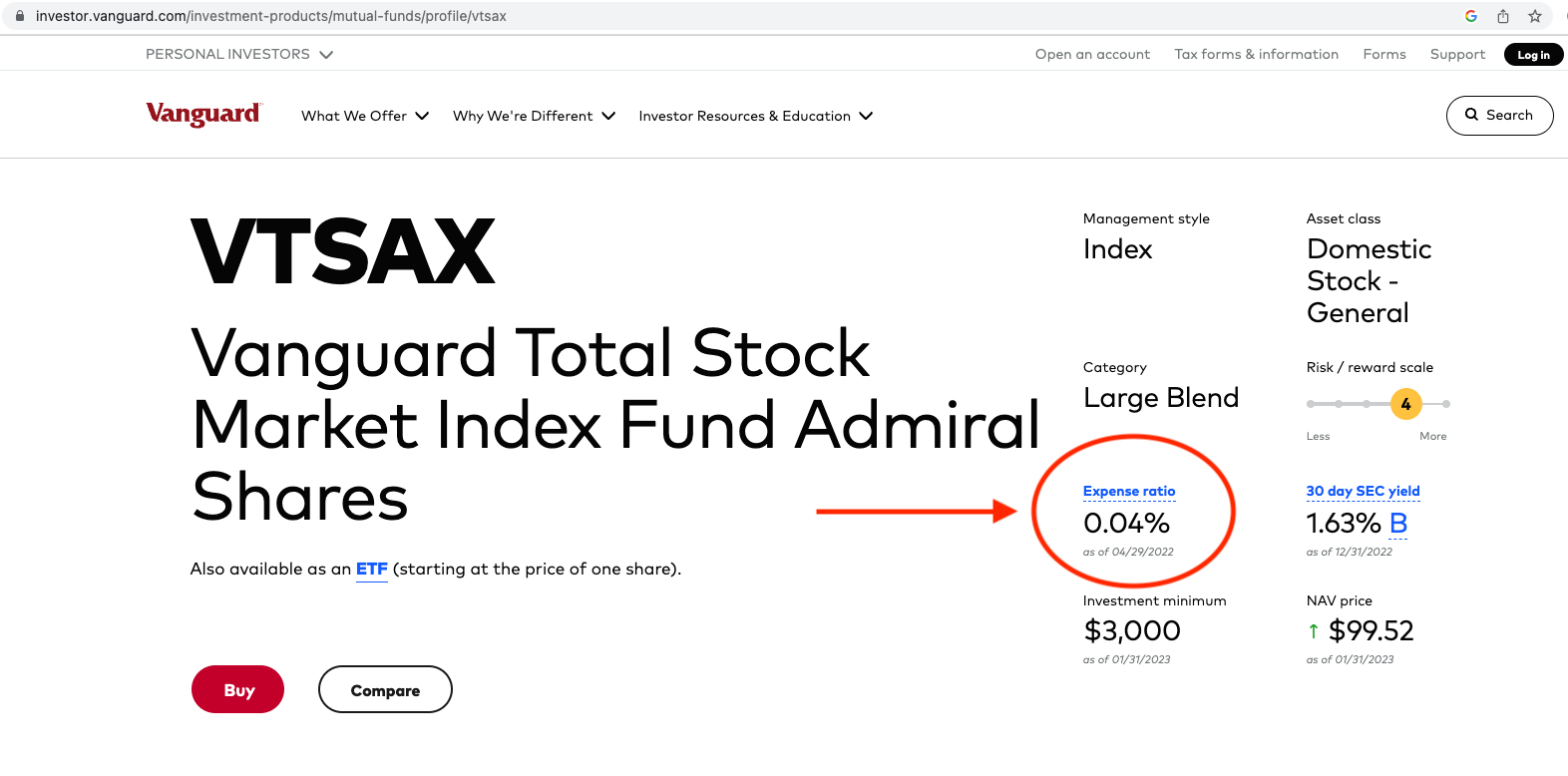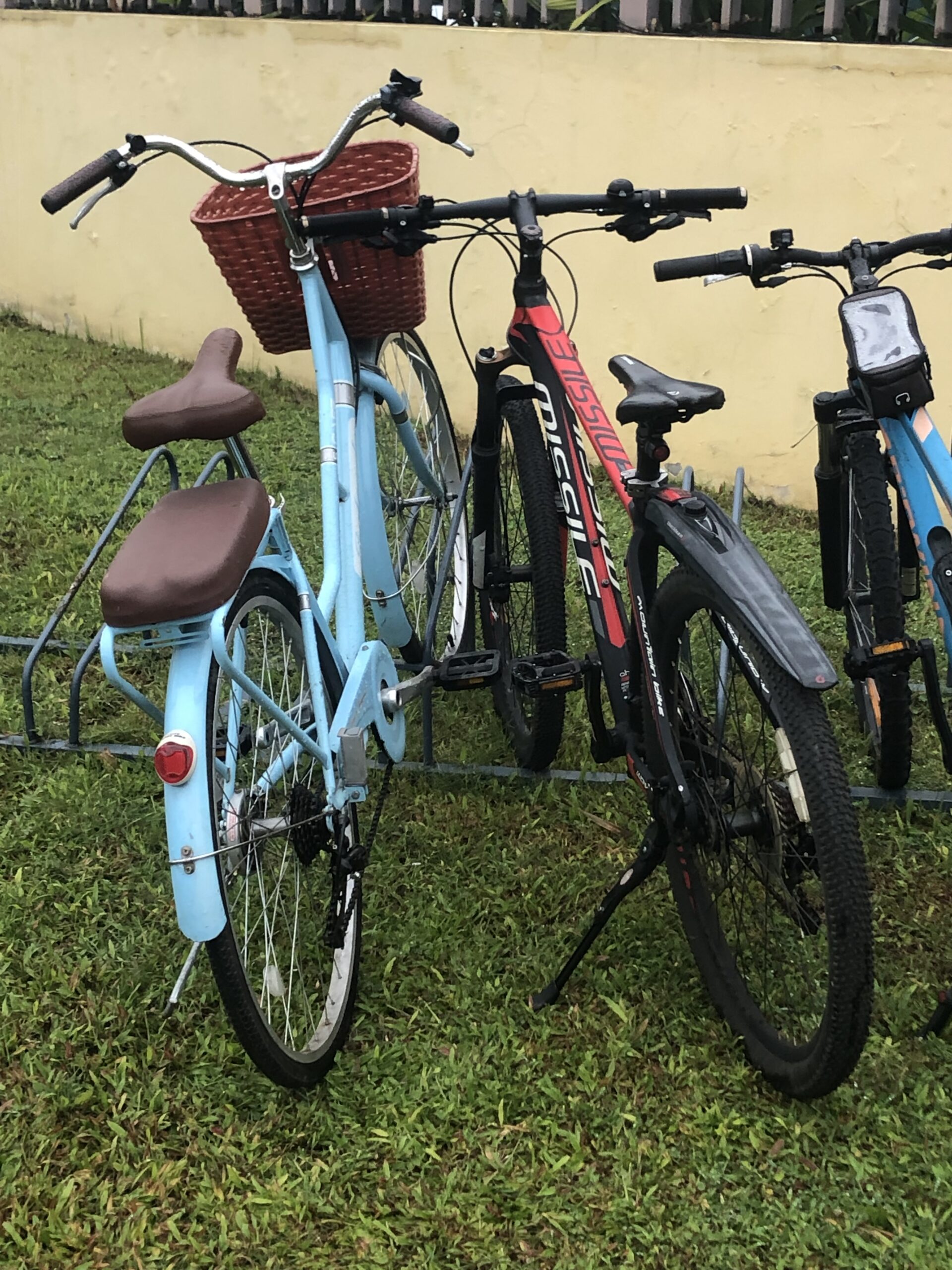

Laura and her husband Ethan are from Philadelphia, PA, but have been living in Hanoi, Vietnam for the past two years. Ethan teaches English literature at an international school and Laura is earning her Master’s degree in public health. They’ve loved their time in Vietnam and plan to be there for at least another year, but are less certain of their plans after that.
Ultimately, they know they want to return to the US in order to be closer to their families, have children and buy a home. Laura is concerned they’re falling behind on retirement and won’t be able to afford a house once they move back stateside. Join me today as we help these ex-pats chart a stable future!
What’s a Reader Case Study?
Case Studies address financial and life dilemmas that readers of Frugalwoods send in requesting advice. Then, we (that’d be me and YOU, dear reader) read through their situation and provide advice, encouragement, insight and feedback in the comments section.
For an example, check out the last case study.�Case Studies are updated by participants (at the end of the post) several months after the Case is featured. Visit this page�for links to all updated Case Studies.
Can I Be A Reader Case Study?
There are four options for folks interested in receiving a holistic Frugalwoods financial consultation:
- Apply to be an on-the-blog Case Study subject here.
- Hire me for a private financial consultation here.
- Schedule an hourlong call with me here.
→Not sure which option is right for you? Schedule a free 15-minute chat with me�to learn more. Refer a friend to me here.
Please note that space is limited for all of the above and most especially for on-the-blog Case Studies. I do my best to accommodate everyone who applies, but there are a limited number of slots available each month.
The Goal Of Reader Case Studies


Reader Case Studies highlight a diverse range of financial situations, ages, ethnicities, locations, goals, careers, incomes, family compositions and more!
The Case Study series began in 2016 and, to date, there’ve been 101 Case Studies. I’ve featured folks with annual incomes ranging from $17k to $200k+ and net worths ranging from -$300k to $2.9M+.
I’ve featured single, married, partnered, divorced, child-filled and child-free households. I’ve featured gay, straight, queer, bisexual and polyamorous people. I’ve featured women, non-binary folks and men. I’ve featured transgender and cisgender people. I’ve had cat people and dog people. I’ve featured folks from the US, Australia, Canada, England, South Africa, Spain, Finland, the Netherlands, Germany and France. I’ve featured people with PhDs and people with high school diplomas. I’ve featured people in their early 20’s and people in their late 60’s. I’ve featured folks who live on farms and folks who live in New York City.
Reader Case Study Guidelines
I probably don’t need to say the following because you all are the kindest, most polite commenters on the internet, but please note that Frugalwoods is a judgement-free zone where we endeavor to help one another, not condemn.
There’s no room for rudeness here.�The goal is to create a supportive environment where we all acknowledge we’re human, we’re flawed, but we choose to be here together, workshopping our money and our lives with positive, proactive suggestions and ideas.
And a disclaimer that I am not a trained financial professional and I encourage people not to make serious financial decisions based solely on what one person on the internet advises.�
I encourage everyone to do their own research to determine the best course of action for their finances. I am not a financial advisor and I am not your financial advisor.
With that I’ll let Laura, today’s Case Study subject, take it from here!
Laura’s Story


Hi Frugalwoods! My name is Laura and I’m 32 years old. My husband Ethan (38) and I are both from Philadelphia, PA but we have lived in Hanoi, Vietnam for just about 2 years now. We don’t currently have any kids or pets but would like a few of both in the near future :).
We moved to Hanoi for Ethan’s job as an English literature teacher at an international school. Before moving here I worked at a non-profit in Philadelphia for 7 years where I worked my way up from answering phones in the call center to software engineer, after my company paid for me to go to coding bootcamp. Learning to code was an awesome opportunity and I liked it in the context of the organization’s mission but it ultimately is not what I want to do with my life. I am currently in graduate school full-time pursuing a Masters in Public Health in Maternal and Child Health and a Certificate in Global Health. I have a Bachelors in Public Health and it feels great to get back into something I’ve always been passionate about. School is great, but I am eager to get back into the workforce in a role I love!
Laura and Ethan’s Hobbies
Ethan and I have a number of hobbies we enjoy independently and together. I learned to knit during the pandemic and got a bit obsessed. I love spending an afternoon watching knitting “podcasts” on Youtube and knitting sweaters and hats for myself and family. I’m an avid reader and I love to go for long walks, do yoga and dance. Ethan is also a big reader, a runner, and a newly obsessed rock climber. Before we moved to Hanoi, Ethan was section hiking the Appalachian Trail every summer break from teaching and we would regularly go camping.�We love to travel, which was a big draw for moving to Southeast Asia. In the last year we’ve: spent a month in Indonesia, met my mom and aunt in South Korea, rock climbed at the beach in Thailand, feasted on sushi in Japan, and traveled Vietnam from top to bottom.�
While I feel like we are doing pretty well financially, we’ve had an intense 5 years since we starting dating. Within the first four months of meeting Ethan, he made his final student loan payment on $80k of debt. I have always been frugal, but I was more of a squirrel hoarding away savings, avoiding my debt. He inspired me to attack my student loans and, within 11 months, I paid off nearly $60k of debt. Last year Ethan got an accelerated Masters in Education, which was necessary for him to maintain his teaching certification. Between choosing a cost effective option and some professional development funding through work, he only paid $4k out of pocket. I am paying out of pocket for my MPH, which after scholarships will run me about $17k over two years. I’m proud of these accomplishments but it’s felt like a lot of money going out for a long stretch.
We are EXTREMELY debt averse as a result of paying off tens of thousands of dollars in student loans. We aren’t sure exactly when we want to move back to the States but we do know that we’d like to buy a house when that day comes. We are terrified of taking out a mortgage, especially with the high current interest rates.
What feels most pressing right now? What brings you to submit a Case Study?


We haven’t had a good stretch of us both working good jobs while not either paying off debt or paying for graduate school. While Ethan feels good about our finances, I have a lot of anxiety about money, which I think is due to:
- Not currently working
- The money stress I’ve inherited from my parents
I think once I’m done with grad school and we are both working and can maximize saving I’ll start to feel better.�
I’m also worried about the transition to moving back home in a few years. We currently have extremely low expenses and the thought of having to pay a mortgage, buy a car or two, everything being more expensive, etc etc is really stressful. I want to think about ways to soften that blow and make the transition less jarring.
I’m concerned that we haven’t contributed to retirement in nearly two years. I’m confused about if we are actually allowed to contribute to the Roth IRAs we already have. Right now we have a good amount of cash saved that is earmarked for a house. I would love to explore with you, Mrs. Frugalwoods, if it ever would make sense to keep piling up cash to pay for a house outright or if we are being foolish here.
What’s the best part of your current lifestyle/routine?
Life in Vietnam is easy! Ethan is well-compensated given the cost of living here and his expat package includes rent and flights home for both of us every summer. Teachers are well-respected in Vietnam and the job is generally less stressful than it was back in Philly. He gets lots of long breaks from school which we have used to travel internationally and explore all over Vietnam.
We have both been able to invest in our hobbies in ways that we never would have previously. I have a gym membership so I can go to dance and yoga classes 4-5 times weekly; I have a basket of lovely yarn to knit sweaters and hats and socks. Ethan has an unlimited rock climbing gym membership and climbs with friends 3 nights a week. We can enjoy exploring our city and feasting on the insane Vietnamese cuisine — a bowl of pho is 75 cents, our favorite vegetarian stall is $2 for a giant plate of food, bowl of soup and green tea. We rarely went out to eat at home so this feels like such a treat.
I had a job in Hanoi from October 2021-January 2023, but quit to focus on school full-time. It feels like we have an incredible amount of freedom to make decisions like that, which was never an option before. While I still have a lot of anxiety about the future, I really do feel less stressed about money than I ever have.�
What’s the worst part of your current lifestyle/routine?


It is hard to be so far away from home. This year we will visit the states for the first time in two years. I missed my niece’s birth in January as well as four good friends becoming first-time parents in the past year. My parents are getting older and I have a lot of guilt about not being close by. Hanoi can also be really challenging — the air pollution in the winter gets really bad, traffic is insane, and the temperature is too hot to go outside for months at a time.
I feel like we are generally responsible with money, but we don’t have a plan mapped out for the future. As a planner, this makes me nervous/feel out of control! I really hate not having an income of my own, but I’m so grateful to be able to focus solely on school right now.
It’s hard to make a plan when there are so many unknown variables:
- Where are we going to live after the 2023-2024 school year? Will we stay in Hanoi? Will we move to a new country?
- What job will I get and how much will I make?
- How much money do we need for a house? Does it make sense to keep saving cash to buy a house outright?
- How can expats contribute to retirement? How far behind are we?
Where Laura and Ethan Want to be in Ten Years:
Finances:�
- I’d like to have a paid off house in the states, preferably near mountains/hiking
- I’d like to have a combined $500k in savings (between cash and retirement)
- I want to feel financially comfortable and not beholden to 9-5 jobs
Lifestyle:
- I’d like to have 2 kids plus dogs and cats running around
- I’d like to be able to spend lots of time with my family outdoors hiking, camping, gardening, rock climbing
- I’d like to still be investing time and money in my hobbies and creative pursuits
Career:
- I want to have worked in a global health role abroad for a few years and then find a hybrid role in the states that allows me to live where I want and visit the office occasionally — a dream is to move to Staunton, VA and find a job in DC that only requires 1-2 visits to the office monthly. I have no idea if this is realistic.
- Ethan would like to still be teaching at a school that gives him the same autonomy in his classroom he has enjoyed in Hanoi.
- He also has dreams of owning a bike shop one day, but I think that’s more like 15 years away.
Laura and Ethan’s Finances
Income
| Item | Number of paychecks per year | Gross Income Per Pay Period | Deductions Per Pay Period | Net Income Per Pay Period |
| Ethan’s salary from teaching job | 12 | $5,514 | Taxes: 2133 (ouch!) Health insurance: 391 | $2,990 |
| Laura’s contract work* | 2 | $4,137 | Untaxed | $4,137 |
| Annual gross total: | $74,442 | Annual net total: | $44,154 |
*This is what I earned this year for this job but I am no longer receiving this income. This was a contract that was paid incrementally, so this was not the figure I received monthly, just FYI
Debts: $0
Assets
| Item | Amount | Notes | Interest/type of securities held/Stock ticker | Name of bank/brokerage | Expense Ratio (applies to investment accounts) | Account Type |
| Ethan High Interest Savings | $76,500 | We view this as house savings. | 3.90% | Marcus – Goldman Sachs | Cash | |
| Laura 401k | $51,867 | 401k through previous employer. | Vanguard Target Retirement 2055 | Voya | Retirement | |
| Ethan PSERS | $20,692 | PA Teachers pension | We couldn’t figure this one out | Retirement | ||
| Laura Brokerage | $18,783 | This is my taxable investment account, which I opened (prematurely) several years ago. I consider this house savings. | It says I have 13 different securities: FDIC, MUB, SUB, VB, VBR, VEA, VNQ, VNQI, VO, VOE, VTI, VTV, VWO but I have no idea what this means!! | Ellevest | Investments | |
| Ethan 403b | $17,362 | Retirement through previous | Vanguard Target Retirement 2050 | PenServ | Retirement | |
| Ethan 403b | $14,764 | Retirement through previous | We couldn’t figure this one out | Alerus | Retirement | |
| Laura High Interest Savings | $10,165 | Back up money for grad school tuition and house savings. | 3.90% | Marcus – Goldman Sachs | Cash | |
| Ethan and Laura Vietnamese Checking | $9,477 | We plan to run this empty, as spending the VND earned here is the cheapest way to spend money here | 0% | Standard Chartered | Cash | |
| Ethan IRA | $5,544 | Vanguard | Retirement | |||
| Laura Checking | $5,228 | 0% | TD | Cash | ||
| Ethan Checking | $3,000 | 0% | TD | Cash | ||
| Laura Roth IRA | $2,326 | Same as brokerage acct. | Ellevest | Retirement | ||
| Total: | $235,708 |
Vehicles
Expenses
| Item | Amount | Notes |
| Tuition | $700 | I got a department scholarship and hoping to get more! |
| Groceries | $250 | Includes all food, alcohol/beer, household and personal supplies (such as toilet paper, shampoo, etc) |
| Travel (flights, hotels, taxis, meals out) | $250 | We travel a lot, it is part of the joy and opportunity of living here. International flights are cheap and comfortable accommodation is usually $25-40/night. We are reimbursed for the cost of two round trip tickets to the States every summer (whether we buy the tickets or not). |
| Restaurants, cafes, bars | $150 | We regularly go out to eat but prioritize eating local food (like pho and vegetarian buffet which cost as little as 75 cents) rather than expensive Western restaurants. We love to spend a weekend afternoon at a coffee shop which is a huge part of Vietnamese culture. |
| Transportation | $60 | Motorbike rental, gas for motorbike, occasional taxi |
| Electric | $50 | On average. We don’t ever run the heat even though it DOES get cold in the north and we minimize AC usage as much as possible |
| Gym | $50 | We paid for our gym memberships upfront. Laura paid $400 for 2 years and goes to classes nearly daily. Ethan paid $400 for a year at a bouldering gym |
| Clothes, shoes | $45 | We buy good running shoes once a year and don’t cheap out on these. We don’t often buy new clothes but things pop up a few times a year. |
| Drinking water | $30 | Tap water is unsafe here so we currently buy 20 liter jugs a few times a week |
| Gifts | $30 | We aren’t big gift givers – we view our frequent trips as gifts for birthdays, anniversaries, etc – but have had close 5(!) friends and family have children this past year and send small gifts for immediate family birthdays |
| Netflix | $22 | I’d like to cancel this because we don’t really use it but I pay for my family’s account |
| Charitable donations | $20 | I use the Libby app with my Kindle. It feels good to make a donation to my library back in Philly every month. Would love to do more. |
| Knitting supplies | $15 | This is an estimate. I got really into knitting during the pandemic and spent $187 on needles, yarn, patterns last year. I have enough yarn and unfinished projects to last me the whole year and then some so it’s likely this will be much less. |
| Spotify | $14 | |
| Cell phones | $10 | $60/year each gets us unlimited data but no minutes or SMS which is fine because we just use WhatsApp and never make calls |
| Massages, haircuts | $10 | Massages are ~$12/hr and we go a couple times a year. Ethan gets a $15 haircut 2x/year. I have been giving myself little trims at home since we’ve lived in VN. |
| Misc (books, etc) | $10 | We use the Libby app with our Kindles but occasionally order through Thriftbooks for things unavailable at the library. |
| Dentist | $8 | We each get teeth cleanings 2x/year (very inexpensive but high quality here – $15 each out of pocket without any insurance!). I had two fillings in January ($40) and hoping to not need any additional work done in the near future |
| Shrole | $6 | Site for international school job postings |
| Air and shower purifier filters | $5 | Air pollution gets really bad here during winter months so air purifiers are essential. The water is heavily chlorinated and getting a filter has been immensely helpful for skin and hair issues! We change both every 6 months or so. |
| The Atlantic | $3 | |
| VPN | $2 | $56/26 months. Finally bit the bullet this year because we couldn’t access some banking sites from abroad |
| The New York Times | $1 | Got a deal on a new subscription for this year, will go up next year or we may cancel |
| Rent | $0 | Ethan’s school pays our rent directly to the landlord |
| Monthly subtotal: | $1,741 | |
| Annual total: | $20,892 |
Credit Card Strategy
| Card Name | Rewards Type? | Bank/card company |
| Ethan – Blue Cash Everyday | 3% cash back | American Express |
| Laura – Citi Double Cash card | 2% cash back | Citi |
| Joint – Venture One Rewards* | 1.25 miles per dollar spent | Capital One |
| Laura – Chase Freedom Unlimited | 1.5% cash back; 5% on travel | Chase |
*I got this one when we moved here because it doesn’t charge foreign transaction fees. I don’t like having this many credit cards. We barely use them since we pay for most things with cash from our Vietnamese checking account.
Laura’s Questions for You:
-


Eating our way around Seoul Can you help us think through saving for a house?
- We aren’t even sure when exactly we would do this, but it feels like the next big thing to save for.
- Given how much cash we have currently and that we wouldn’t buy a house valued at more than ~$300k, should we continue saving? Is the idea of paying for a house in cash terrible?!
- Are expats allowed to contribute to retirement?
- How far behind are we on retirement?
- Our income and expenses are likely to change after next summer when I no longer have to pay for grad school and start making an income again.
- What should we do with this extra money? Retirement? Cash savings?
- Should we start a separate savings earmarked for ‘moving home’?
- How can I feel less anxious about the future?
- I’d love to get to a place where I’m comfortable with what’s coming in and knowing that we are automated to meet our goals for the future.
Liz Frugalwoods’ Recommendations
I’m thrilled to have Laura and Ethan as our Case Study subjects today! They bring an interesting twist with their work abroad and desire to one day move back to their home country. I love that they’re taking the time now to map out their financial moves for the next few years. Even if things don’t go perfectly to plan, it’s usually best to start with a plan! Let’s dive into Laura’s questions:
Laura’s Question #1: Can you help us think through saving for a house?
Laura and Ethan already have a hefty amount–$76,500–saved up for a house, which is fabulous! My concern here is their stated desire to pay cash for a house. Laura asked:
Is the idea of paying for a house in cash terrible?!
The answer is that it depends. If you are ridiculously wealthy–as in, a billionaire or multi-multi-multi-millionaire–then it doesn’t really matter. Pay cash, don’t pay cash–either way, you still have a ton of money. On the other hand, if you are in the category of most of us–as in, you have some money, but it’s not endless–it very rarely makes sense to pay cash for a house. There are a number of reasons for this, so let’s explore them all!
Why You Probably Shouldn’t Pay Cash For a House (or pay off your mortgage early)
1) It’s a massive opportunity cost.


When you buy a house in cash (or pay off a mortgage early), you’re missing out on the potential investment returns you’d enjoy if your money was instead invested in the stock market or a rental property.
The deal with this is that a paid-off house returns the rate of your mortgage interest rate (or the interest rate you would’ve gotten on a mortgage).
For example:if your mortgage interest rate is fixed at 3.75% and you pay if off, you’re getting a 3.75% rate of return, which is pretty low. By comparison, historical stock market trends demonstrate that–over many decades of investing–the market delivers somewhere in the range of 7% annually. That does not mean 7% every year, but rather, a 7% average over the lifetime of an investor. Since 7% is a higher return than 3.75%, you’d be better off–in this hypothetical–with carrying a mortgage and instead investing your extra cash in the stock market.
→Where this logic doesn’t hold up as well is when mortgage interest rates are high.�
However, even in the case of higher mortgage interest rates, it still usually makes sense to carry a mortgage because of the opportunity cost of that cash sitting around earning nothing for all the years it took you to save it up. Most of us don’t wake up one day with $300k in our bank account. Instead, we’d have to spend many years–potentially decades–saving up that much cash. During that time, we’d be consistently exposing ourselves to the opportunity cost of not having that cash invested.
The reason to not save enough cash to buy a house outright mirrors the reasons why we don’t save only cash for retirement:
- Cash does not keep up with inflation (every day, your cash is worth less than the day before)
- When you spend your cash, it is gone (versus drawing down a sustainable percentage of an overall investment portfolio)
- Cash does not have the potential to appreciate (beyond the interest rate you earn on your savings account)
2) Saving this much cash might limit your retirement contributions.
Since you’re only permitted to put a certain dollar amount into tax-advantaged retirement accounts every year, if you’re instead putting that money towards cash savings, you’re shooting yourself in the foot twice:
- You’re missing out on the tax advantages conferred by retirement accounts
- You’re missing out on the potential growth of those retirement accounts (opportunity cost)
If you have the financial ability to do so, you want to max out all of your tax-advantaged retirement accounts annually. Again, there’s an annual cap on how much you can funnel into tax-advantaged retirement accounts, which is why it’s important to do so every year.
3) A paid-off house is an illiquid asset.


This is another salient concern because you can’t use a paid-off house to buy groceries or fix your car or pay for health insurance if you lose your a job. Yes, you might be able to get a Home Equity Line Of Credit (HELOC), but that’s not a guarantee and certainly not very likely if you’ve lost your job.
Tying up ALL of your excess cash in a paid-off house is a dangerous proposition. Sure, you could sell the house, but then you’ll need to pay for somewhere else to live.
4) Before buying a house in cash (or paying off a mortgage early), you need to have all of the following:
- A robust emergency fund of, at minimum, three to six months’ worth of your living expenses, held in an easily accessible checking or savings account.
- No high interest rate debt.
- Retirement investments (i.e. a 401k, 403b, IRA, Roth IRA, etc) that are fully funded as appropriate for your age, goals and anticipated retirement date.
I would further argue that you should also have at least one other form of investment (in addition to your retirement), such as:
- A taxable investment account of diversified total market, low-fee index funds, both domestic and international (aka stocks)
- 529 College Savings accounts for your kids
- Optional: an income-generating rental property
You certainly don’t need to have this entire second list of items lined up, but you should absolutely have the first three on lockdown.
5) A mortgage is a nice hedge against inflation.


Inflation is when money becomes less valuable. The good thing about a mortgage is that it’s denominated in the dollars you originally paid for the house. Thus over time as inflation increases, which generally happens, the money you’re using to pay off your mortgage becomes “cheaper.” This is another way in which a mortgage can really work to your financial advantage.
Summary:
Unless you have unlimited funds (in which case you’re likely not reading this… ), paying cash for a house (or paying off a mortgage early) is typically an emotional decision, not a financial one.
Laura’s Question #2: Are expats allowed to contribute to retirement?
This answer depends entirely upon Laura and Ethan’s tax situation. According to H&R Block:
In order to contribute to an IRA while living abroad, you need to have income leftover after deductions and exclusions. If you exclude all of your income with the FEIE and have no other sources of earned income, you are not eligible to contribute to an IRA. However, if you only exclude part of your income or claim the foreign tax credit (FTC) instead, you may still be able to contribute to an IRA.
To put this more simply, Laura and Ethan need to have enough earned income leftover after claiming the foreign earned income exclusion (and any other exemptions, such as the foreign housing exclusion). Since we don’t have Laura & Ethan’s tax returns, we can’t precisely answer this question, but I hope this helps point them in the right direction. If they’re using an accountant to prepare their taxes, this is a great question to ask them.
→The other thing to note is that Laura needs to have earned income in order to be eligible to contribute to an IRA. Since she doesn’t have earned income right now, she can look into opening a spousal IRA.
Here’s the IRS documentation on this�(control F for “Contributions to Individual Retirement Arrangements”).
Laura’s Question #3: How far behind are we on retirement?
Let’s take a look at what they currently have in their retirement investments:
| Item | Amount | Notes |
| Laura 401k | $51,867 | Retirement account through previous employer. |
| Ethan PSERS | $20,692 | PA Teachers pension |
| Ethan 403b | $17,362 | Retirement account through previous employer. |
| Ethan 403b | $14,764 | Retirement account through previous employer. |
| Ethan IRA | $5,544 | |
| Laura Roth IRA | $2,326 | |
| Total: | $112,555 |


While this total technically puts them behind on retirement given their ages, it also doesn’t accurately account for the three mega wildcards here:
- Ethan’s pension
- Their anticipated Social Security
- Their future jobs and potential future employer-sponsored retirement plans
As we’ve discussed in previous Case Studies, pensions are a wild card. In some cases, a pension means you’re set for life once you retire. In other cases… not so much. Laura noted that they weren’t able to figure out Ethan’s pension, but they need to. There is someone whose job it is to explain the PA pension system to teachers and they need to call that person. I can’t answer this for them since I don’t know the dates of Ethan’s service or his job title, but, this is a worthy rabbit hole for them to go down. I’d start with the PSERS websiteand/or the teacher’s union rep.
→Another a major factor is whether or not Ethan plans to go back into public school teaching once they’re stateside.
If so, he’ll likely be eligible for another pension system and he’ll want to ensure he understands the ramifications of fully qualifying for that pension. Note that in some cases, receiving a public employee pension disqualifies you from receiving Social Security. Furthermore, if Ethan teaches in a public school under the same PSERS pension plan, he’ll want to spend some quality time with HR and/or his union rep to ensure he’s able to apply his previous years of service.
From their above list of retirement accounts, it looks like Laura and Ethan did a terrific job of contributing to retirement through their previous employers. In light of that, they should continue that habit once they’re stateside. They can also resume their IRA/Roth IRA contributions at that time.
Laura’s Question #4: Our income and expenses are likely to change after next summer when I no longer have to pay for grad school and start making an income again. What should we do with this extra money? Retirement? Cash savings? Should we start a separate savings earmarked for ‘moving home’?
I love that Laura’s planning so far ahead! However, I think this answer will depend on where they are in their process of moving back to the states.
Retirement:
If they determine that their tax situation makes them eligible to contribute to their Roth IRA and IRA, they should absolutely go ahead and max those out. Note again that Laura would need to either have earned income or open a spousal IRA.
Additionally, if their future US jobs offer employer-sponsored retirement accounts, they can max those out.
Cash Savings:
Laura and Ethan are already overbalanced on cash, as we can see below:
| Item | Amount | Notes |
| Ethan High Interest Savings | $76,500 | We view this as house savings. |
| Laura High Interest Savings | $10,165 | Back up money for grad school tuition and house savings. |
| Ethan and Laura Vietnamese Checking | $9,477 | We plan to run this empty, as spending the VND earned here is the cheapest way to spend money here |
| Laura Checking | $5,228 | |
| Ethan Checking | $3,000 | |
| TOTAL: | $104,370 |
In light of that, I’m hesitant to recommend they stash even more money in cash, for all the reasons I outlined above related to opportunity costs.


I do, however, fully support their current cash stash since it represents:
- A house downpayment
- Buffer for grad school tuition payments
- Their emergency fund
- Vietnamese currency they intend to spend down
- Moving-back-home money
→Now I’m going to disagree with myself: despite the opportunity costs of cash, it’s also true that Laura and Ethan are in flux right now.
They’re not certain where they’ll be living in a few years, how much a house will cost, when they’ll have kids, how quickly they’ll find new jobs, what their moving costs will be and what their expenses will be back in America. That’s a lot of unknown variables! And the best thing to have when there are a bunch of unknowns is extra cash. I do want to caution them, though, that cash is not a longterm investment strategy. Nor is it the place to keep large chunks of money for long periods of time.
If it were me, I’d keep all of this current cash on hand and wait and see how plans shake out. Another option for them to consider are medium-term investment options, such as CDs, Money Market Accounts, etc. However, they’re already in a high-yield savings account, which is the most flexible way to leverage your cash.
If Laura and Ethan know they won’t be using their house downpayment for the next year or so, they could certainly see if there’s a 12-month CD offering a higher rate of return than their high-yield savings account. That would be one way to essentially keep their cash, but also have it earn more. A CD locks your money up for a specified period of time and then delivers you a specified return when you cash it out. It’s not a great long-term investment vehicle–since the returns typically lag behind the stock market–but it can be great for short-term goals.
Laura’s Question #5: How can I feel less anxious about the future?I’d love to get to a place where I’m comfortable with what’s coming in and knowing that we are automated to meet our goals for the future.


I personally don’t see anything in their financial situation to be particularly anxious about. Their expenses are low and they clearly have good financial habits ingrained. I get the sense that Laura’s anxiety might be more about the many unknown variables in their life right now. I also don’t know that she’ll be able to “automate” things until they’ve moved back to the states and ironed out where they’ll live and work. It’s really too many variables to control for at this point, but I want to emphasize again that they’re doing a great job! The key will be for them to retain their excellent money habits once they return to the US and experience a dramatically higher cost of living.
In many way, they are in a holding pattern while living in Vietnam. But that’s not necessarily a bad thing! Saving up more money is always a good choice. When and how to deploy that money will become clear as these other lifestyle factors fall into place. I realize that this is easy for me to say since I’m not living it, but, from an outsider’s perspective, Laura and Ethan are doing great!
Research Your Investment Accounts
One final piece of advice for Laura and Ethan is to look into their investment accounts. While it’s fantastic that they have retirement investments as well as a taxable investment account, they didn’t provide much detail on what those accounts are invested in. This is the “devil in the details” of investing. The first important step is to open these accounts and put money into them. The next most important step is to make sure you’re investing in a way that fits your priorities and limits the fees you pay.
Rollover the Old 401ks and 403bs
Since they have a number of accounts from previous employers, I encourage them to look into rolling over these accounts–the old 401ks and 403bs–into IRAs. The reason to do this is so that you can control what you’re invested in. When you have a retirement account through a current employer, you can only choose investments that are offered by your company’s plan. In some cases, that’s totally fine and you have great options to choose from. In other cases, you’re locked into funds with high fees and/or poor performance. Despite that, it still makes sense to max out employer-sponsored accounts. But, once you leave that employer, you’re free to roll that account over into an IRA that falls fully under your jurisdiction.
Roll into a Roth IRA or a Regular IRA? If your 401ks/403bs were set up as Roths, you can roll them into a Roth IRA. If they’re not set up as Roths, you can roll them into a traditional IRA. You typically do not ever want to roll from a regular to a Roth as you’d then have to pay allllll the taxes in that calendar year. Not good!


Here’s how to execute a rollover:
- Call the brokerage (or do it online) that currently holds your 401ks/403bs to ask about doing a “direct rollover” into a traditional IRA (either at that brokerage or a different one).
- You’re likely not going to want to roll them into Roth IRAs because you’d then have to pay taxes on the full amount all in this calendar year (assuming these accounts aren’t Roth). If they are Roths, they can only be rolled into a Roth.
- Your new brokerage will want to know what you want to invest your rolled over IRAs in.
Here’s an article explaining rollovers:Your Guide to 401(k) and IRA Rollovers.
What to Invest In?
Now that we know the vehicle Laura and Ethan will be utilizing–either a Roth or traditional IRA–what should they invest them in? I can’t tell them specifically what to invest in, but I can tell them the broad strokes that I follow with my investments.
If it were me, I would put everything into one total market, low-fee index fund that matched my asset allocation needs and risk tolerance. The reason for this is that, in general, investing in a total market index fund gives you the broadest possible exposure to the stock market (as well as the lowest fees).
In a total market index fund, you’re essentially invested in a teensy bit of every single company in the stock market, which gives you a ton of diversity. If one company–or even one sector–tanks, your entire portfolio isn’t toast. It’s the “not putting all of your eggs in one basket” version of investing.
Know Your Risk Tolerance
Another key factor in investing is understanding your personal risk tolerance. Investing in the stock market is inherently risky. In light of that, Laura and Ethan have to determine how risky they want to be with their investments. A good way to mitigate risk is through diversification, which is why many folks have both stocks and bonds in their investment portfolio.

 The easiest way to think about this is that often, high reward = high risk and low reward = low risk.
The easiest way to think about this is that often, high reward = high risk and low reward = low risk.
Find Your Expense Ratios
�Something missing from Laura and Ethan’s list of assets are the expense ratios on their investment accounts. This is a critical bit of data they should look into for the retirement accounts and their taxable investment account. Expense ratios are the percentage you pay to the brokerage for investing your money and, as they are fees, you want them to be as low as possible.
As Forbes explains:
An expense ratio is an annual fee charged to investors who own mutual funds and exchange-traded funds (ETFs). High expense ratios can drastically reduce your potential returns over the long term, making it imperative for long-term investors to select mutual funds and ETFs with reasonable expense ratios.
I’ll use Vanguard’s Total Market Index Fund (VTSAX) in a demonstration of how to find a fund’s expense ratio:
- Google the stock ticker (in this case I typed in “VTSAX”)
- Go to the fund overview page
- Look at the expense ratio
Screenshot below for reference:

To give Laura and Ethan a sense of whether or not their investments have reasonable expense ratios, the following three funds are considered to have low expense ratios:
- Fidelity’s Total Market Index Fund (FSKAX) has an expense ratio of 0.015%
- Charles Schwab’s Total Market Index Fund (SWTSX) has an expense ratio of 0.03%
- Vanguard’s Total Market Index Fund (VTSAX) has an expense ratio of 0.04%


They can also use this calculator from Bank Rate to determine what they will pay in fees over the lifetime of their investments, based on their expense ratios. If you find that your investments have high expense ratios, it is well worth your time to investigate moving them to lower-fee funds (or changing brokerages altogether).
Investing 101
I highly recommend the book,The Simple Path to Wealth: Your Road Map to Financial Independence And a Rich, Free Life,by: JL Collins, if you’d like to deepen your knowledge around investing. It’s well-written and easy to follow.
Summary:
- Familiarize yourselves with the drawbacks of paying cash for a house:
- Know that not all debt is bad. In some cases, leveraging debt is the most financially prudent move.
- Examine your tax situation to determine whether or not you have enough earned income to contribute to your IRA:
- Since Laura doesn’t have earned income right now, she can look into opening a spousal IRA
- Research Ethan’s pension:
- This could be a pivotal part of your retirement and it behooves you to know the parameters.
- Consider rolling over your old 401ks/403bs into IRAs:
- Research funds, read JL Collins’ book on investing and locate a brokerage that’ll offer you low-fee funds that match your desired asset allocation and risk tolerance
- Plan to max out your future US employer-sponsored retirement plans:
- If Ethan returns to public school teaching, ensure you understand the pension system
- Feel confident that you’ve made great financial decisions up to this point and that carrying those good habits forward will serve you well.
Ok Frugalwoods nation, what advice do you have for Laura? We’ll both reply to comments, so please feel free to ask questions!
Would you like your own Case Study to appear here on Frugalwoods? Apply to be an on-the-blog Case Study subject here. Hire me for a private financial consultation here. Schedule an hourlong or 30-minute call with me,�refer a friend to me here, schedule a free 15-minute call�to learn more or email me with questions (liz@frugalwoods.com).
